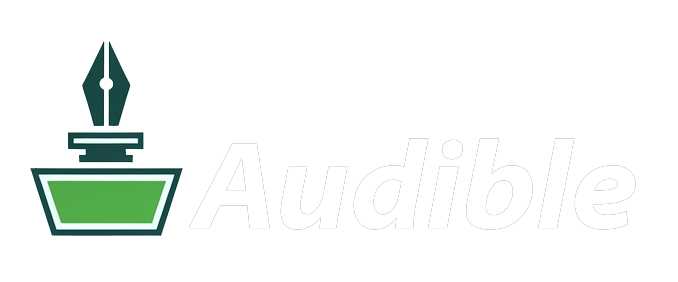The New Jobs AI Will Create

Hyperbole fills almost every video and article your eyes and ears encounter on artificial intelligence (AI), and more specifically, OpenAI's ChatGPT.
Strip away the hype, and three main themes stick:
- Theme #1: Massive job cuts are coming.
- Theme #2: The AI beast will continue to feed on billions in investments.
- Theme #3: AI bias, safety violations, and intellectual property (IP) theft will continue and remain largely unchecked.
You're hard pressed to find any professional, regardless of functional expertise, who isn't concerned about the impact AI will have on their current and future employment.
An article published, but widely overlooked, inside The New York Times Magazine, A.I. Might Take Your Job. Here Are 22 New Ones It Could Give You (behind a paywall) attempts enlighten professionals on what's coming next.
OpenAI has consistently reported that ChatGPT has around 800 million weekly active users throughout 2025.
That's not really the story here.
In February 2025, OpenAI announced that its business user base reached 3 million paying enterprise customers.
An astounding level of adoption when you realize their enterprise tools have only been available for two years (launched August 28, 2023).
I suspect most early adopters are software as a service (SaaS) companies with fewer than 100 employees, which are best positioned to implement AI tools and transform into an AI-first company.
As a marketing professional with 20 years of experience working inside large enterprises with more than 10,000 employees outside the technology sector, I believe many haven't even started conducting a substantial pilot program yet, let alone pushed into training AI models on their own private data.
From Hallucination to Verification: The Coming Era of AI Trust
The Times report and the experts cited in the article bring the microscope closer in to examine the gaps, with the primary one being trust.
Hallucinations should qualify as one of the top buzzwords of 2023.
Every article on ChatGPT and the other large language models (LLMs) highlighted how frequently these AI models hallucinated to somewhat comedic levels.
While that buzzword hasn't seen similar traction in 2025, it's evidence that you cannot naively trust the outputs coming from AI models.
The trust will only be established through accountability and verification.
This requires people to place their professional credibility and licenses behind the outputs generated for a range of business purposes.
Easily, over the next several years, we might see a range of new roles created to build trust with clients and business partners, such as:
- AI Auditors
- AI Ethicists
- AI Translators
- Trust Authenticators
- Trust Directors
- Legal Guarantors
- Escalation Officers
In a strange twist, one of AI's most significant benefits eventually might become reestablishing the need for mutually agreed-upon facts.

The Next Recruiting War: AI Integrators & Taste Professionals Become Corporate Gold
Two additional categories where we're poised to see the rise of new AI jobs are: (1) Integration, and (2) Taste.
These are the technical professionals (i.e., developers, engineers, scientists, etc.) who will continuously assess the capabilities of the latest AI models and determine which models are best suited to the organization's goals, mission, and vision.
They'll own engaging with the top executives at the company to embed crucial elements like key performance indicators (KPIs) into the AI models.
Additionally, they'll develop company IP built on top of these AI models to drive business results and outcomes closer to leadership's expectations.
Professionals in this category will become the focus of recruiting wars that will unfold five to ten years down the line across corporate America.
Those inside this category might have titles such as:
- AI Integrators
- AI Trainors
- AI Model Assessors
- AI Model Refiners
Technical professionals will be central to disseminating knowledge to their non-technical colleagues responsible for maximizing the use of AI tools within their departments.
Lastly, you have the category of taste.
The professionals who manage customer and partner-facing engagements, both digital and live interactions.
They know the target audiences and customers.
Transferring the knowledge they have and training AI models on what makes your products and services valuable and differentiated from your competitors will ride on the shoulders of these professionals (e.g., marketing, product, sales, etc.)

The Experienced Professionals Who Wait Are Doomed
Are you preparing for what's ahead? How?
I'm specifically asking professionals like me. You know, those men over 45, who are most likely to have their careers disrupted and derailed by a new technology that accelerates so fast that nothing can harness it.
It's safe to assume most aren't. OpenAI's How People Use ChatGPT report was rather telling. The most frequent users of AI tools range between 18 and 25.
They're becoming AI-natives. These early adults are inclined to try, test, and learn.
Too many experienced professional are waiting for the mandate to come down from their directors and executive leadership within their companies.
The wait will cost you the headstart and edge you're going to need.
Most mid-sized and large enterprises will eventually use this technology revolution as a sink-or-swim moment.
In 1992, my uncle, who was in his early fifties and a Vice President at a large, top tier insurance company, had his professional career shortened in a sink-or-swim moment. The sudden ubiquitious presence of desktop computers flooding offices in the early 1990's, sidelined him when his computer skills didn't meet the bar.
In 2010, I sat inside a plush conference room with the extended marketing team at McKesson Corporation, which was then and remains the largest pharmaceutical distributor in the United States. I listened to a presentation from three sales account executives at Instagram.
Even before being acquired by Meta, they were telling us this social platform would change how advertising, marketing, and sales were done.
Eight years later, in a different conference room with a different company and team, and they're asking how much I knew about paid social advertising on Instagram. The answer was nothing.
You're on your own when it comes to learning and mastering new job skills. The programs most employers will make available to you are second-rate.
Think Udemy. Think Skillshare. Think Coursera.
To build the skills your employers are going to need and demand, the approach must be radically different.
The first phase is taking an online course for exposure and the basics.
In this case, it's a prompt engineering course, and immediately afterward, jump right into building and creating your own thing.
When you're working to build, create, monetize, and sell for yourself. Everything you'll learning will sink in four levels deeper when you use it to create your own startup, and venture into small-scale entrepreneurship.
Remember the three categories where jobs will be created. You'll gain experience with each category, and it will double, possibly triple your value.
Precious few working outside the 'Integration' category will know how to take hands-on command and establish practices and processes where none exist.
Forget that – you might decide to exit the company and sell your consulting services to them for twice what your compensation is right now.
I challenge you to take the big leap and rush into the unknown today! ■






Member discussion